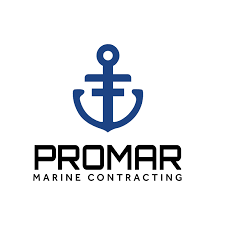
Technically yes, but it’s not recommended. Algae itself is not harmful to swimmers, but pools with lots of algae can contain harmful bacteria and pathogens like E-coli. And cloudy water caused by algae can be a hazard if swimmers can’t see the bottom of the pool. Avoid swimming in a pool that isn’t properly sanitized and cleaned.
Several types of algae and mold can plague your swimming pool, making it unsightly and potentially dangerous to swim in. Swimming pool algae typically presents itself in poorly maintained water that lacks chemical balance and proper filtration. So read on to find out whether it’s safe or not to swim in a pool with algae and determine the type of algae in your swimming pool so you can properly treat it.
How Algae Affects Swimmers
Can you swim in a pool with algae? In short, the answer is yes. But is it safe to swim in a pool with algae? Whether mild or severe, it isn’t recommended.
Significant amounts of swimming pool algae welcome a breeding ground of harmful bacteria that feed on algae. These bacteria pose health risks to swimmers, most commonly resulting in a skin rash. It can also cause various bacterial infections of the ears or eyes. If contaminated pool water is accidentally ingested, it can cause other health concerns as well, resulting in a fever or diarrhea. So, swimming pool algae must be taken seriously to keep your pool water sanitary and eliminate potential health risks.

How Algae Affects Pools
Is pool algae dangerous to your pool? When your above ground pool water is green with spots of black, red, or mustard yellow algae, it can present serious issues for your pool.
Excessive swimming pool algae can clog up your sanitation pathways, making your filtration systems ineffective. Swimming pool algae can permanently stain your pool structure and even lead to the deterioration of your pool equipment. Once algae have spread over your swimming pool, chemical shocks and chlorine treatments become ineffective as algae become resistant in extreme cases.
If you see signs of swimming pool algae, determine what type of algae you are dealing with. Then take the appropriate steps to eradicate it. Once the algae are resolved, take preventative measures against future swimming pool algae.
Common Types of Pool Algae
There are four types of swimming pool algae you’re most likely to encounter.
Black mold in a swimming pool is a collection of microscopic algae that creates visible black spots on your pool’s structure. Removing black mold in a swimming pool is difficult. Though it can grow slowly at first, black mold can quickly spread and potentially damage your pool’s structure if left untreated. Black mold in a swimming pool roots deeply into the surface it has grown on and thrives in the bottom and deep ends of pools.
Green algae in a swimming pool are considered the most common swimming pool algae. If your above ground pool water is green with a slimy texture, it’s a clear sign of green algae in your swimming pool. Imbalanced chemicals will allow green algae in a swimming pool to form on the pool’s sides or top of the water.
Mustard algae in a swimming pool are commonly mistaken for pollen or dirt on the floors and walls of your pool. Primarily caused by external factors, mustard algae in a swimming pool can be challenging to treat, as it’s resistant to chlorine. Left untreated, mustard algae in a swimming pool can make the water cloudy and create an environment that welcomes harmful bacteria.
Red algae in a swimming pool can be a disturbing sight. Red algae in a swimming pool is a type of bacteria that enters the water on swimmers or by wind, rain, and pool accessories. When red algae in a swimming pool are left untreated, it will take over the entire pool and become a health hazard.
To learn more about swimming pool algae and how to eradicate and prevent it from reoccurring, check out our complete guide to swimming pool algae. Also, try Pool Marvel Water Treatment to increase the effectiveness of your pool’s chemical treatments to prevent swimming pool algae in the future.
Credit: SPA MARVEL
























Where there is a will, there is a way.
An intriguing discussion is definitely worth comment. I do believe that you need to write more on this subject, it may not be a taboo matter but generally people do not discuss these issues. To the next! All the best!!
Thanks for your blog, nice to read. Do not stop.
I would like to thank you for the efforts youve put in penning this website. I really hope to check out the same high-grade content by you in the future as well. In fact, your creative writing abilities has encouraged me to get my own, personal blog now 😉
Happy everyday!